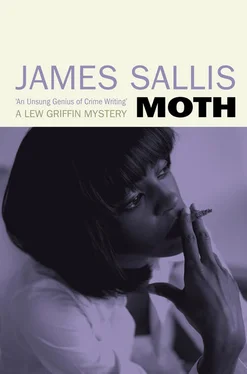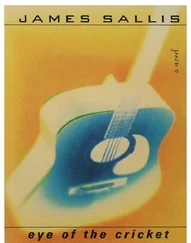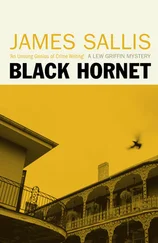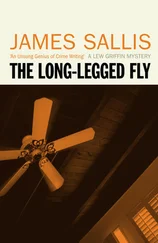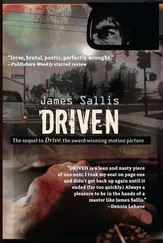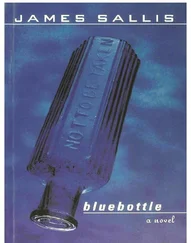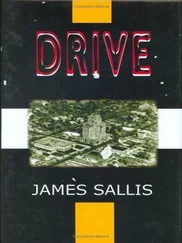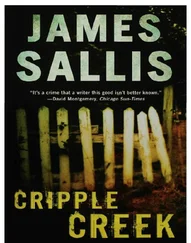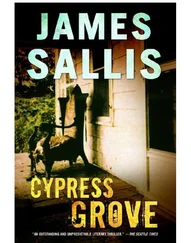James Sallis - Moth
Здесь есть возможность читать онлайн «James Sallis - Moth» весь текст электронной книги совершенно бесплатно (целиком полную версию без сокращений). В некоторых случаях можно слушать аудио, скачать через торрент в формате fb2 и присутствует краткое содержание. Жанр: Криминальный детектив, на английском языке. Описание произведения, (предисловие) а так же отзывы посетителей доступны на портале библиотеки ЛибКат.
- Название:Moth
- Автор:
- Жанр:
- Год:неизвестен
- ISBN:нет данных
- Рейтинг книги:3 / 5. Голосов: 1
-
Избранное:Добавить в избранное
- Отзывы:
-
Ваша оценка:
- 60
- 1
- 2
- 3
- 4
- 5
Moth: краткое содержание, описание и аннотация
Предлагаем к чтению аннотацию, описание, краткое содержание или предисловие (зависит от того, что написал сам автор книги «Moth»). Если вы не нашли необходимую информацию о книге — напишите в комментариях, мы постараемся отыскать её.
Moth — читать онлайн бесплатно полную книгу (весь текст) целиком
Ниже представлен текст книги, разбитый по страницам. Система сохранения места последней прочитанной страницы, позволяет с удобством читать онлайн бесплатно книгу «Moth», без необходимости каждый раз заново искать на чём Вы остановились. Поставьте закладку, и сможете в любой момент перейти на страницу, на которой закончили чтение.
Интервал:
Закладка:
“Which I’m certain you must realize is just not … possible,” Guidry added, smiling. Between men.
I smiled back.
White teeth gleaming.
Maybe I should break into a chorus of O massuh, how my heart grow weary.
“I see. Then I have to assume you’re no more willing to listen to reason than she is.”
“It’s her decision, Guidry. Not yours, not mine.”
“She’s a child. A confused child.”
“Laws say that she’s an adult, and protect her rights the same way they protect yours or mine.”
“One has to wonder what you expect to get out of this.”
“Wonder away.”
Instinctively, he had squared off with me. Now he backed away a half step. “I know about you, Griffin. You’re a weak man. Always have been. One hard push, your knees’ll give.”
“Push away. Find out.”
“A drinker. And inherently a violent man-a killer, some say. That’s no environment for a troubled young woman who needs desperately to work out her own problems.”
He turned back to Alouette without moving closer.
“I sincerely hope you’ll take time to think this whole thing over, come to your senses. See what needs to be done here. I’ve always taken care of your needs. I always will.”
“Needs change,” she said with a glance toward me. “Maybe you can’t take care of my needs anymore, Daddy.”
“And this man can.”
“I don’t know. Maybe only I can. Or maybe I can’t. That’s part of what I have to find out.”
“I’m telling you here and now that this will not happen. I simply can’t allow it.”
“I’ve talked to the social workers and hospital lawyers, Daddy. Short of alleging burglary and having me thrown into jail, there doesn’t seem to be much you can do about it.”
“We’ll see about that.”
“Do what you think you have to. That’s all I’m doing.”
“I’ll see you both again then-very soon.”
He walked to the elevator and stood with his finger on the down button.
“Daddy.”
“Yes?”
“There’s something I never asked. You always made me feel I couldn’t ask it, but I don’t feel that way any longer.”
He held out an arm to keep the elevator doors from closing. They bucked convulsively. “What is it?”
“Why did you think you had any right to keep me away from my mother?”
He stood looking at her, a squall of emotions ticking at his face in the moment before calm restored itself, then turned and stepped into the elevator.
We spent the next hour extricating Alouette from the hospital’s coils. A formal discharge visit from her attending physician; a trip down to the administrative offices where our walleyed champion had prepared the way and we were in and out in minutes, Alouette signing papers to pay off her bill in low biweekly installments; a ride back up to retrieve the clothes I’d bought her and say good-bye to staff and patients.
Then we were walking out into another bright, clear day. Were in the Mazda curving along Riverside Drive. I asked if she wanted to stop for something to eat since there wouldn’t be much chance for a while after this, and she said no. She found music on the radio, cranked both that and the seat down low, leaned back and fell promptly asleep. Tunica, Mound Bayou, Cleveland and Greenville rolled over her closed eyes. Hollandale, Redwood. But mostly the same furrowed fields, the same narrow straight roads and blanketing dust, huge spindly irrigation systems linked together like Tinkertoys, little more than hoop wheels and perforated pipe.
Erratic traffic as we approached Vicksburg brought her awake in late afternoon. She opened one eye to peek out the windshield, turned it on me and said hoarsely: “Food?”
Which we partook at a truck stop just off the highway, in accordance with her express desire (when I asked more specifically what she might want) for “food, just food, in large quantities, with lots of grease.”
Neither wish was disappointed.
Nor did we fail to attract looks, just looks, also in large quantities, also (for lack of more appropriate synonym) greasy.
It was a place of basics: stand after stand of fuel pumps out front, Spartan restaurant area, cashier’s counter with boxes of cheap cigars, pocket knives and belt buckles under its glass top and a rack of T-shirts with clever slogans alongside, bunkerlike bathrooms with rentable showers for truckers.
Clouds had been gathering for some time, bumping up against one another, and as we sat over burned-smelling coffee with oils afloat on its surface, several of them coalesced into one, like a dark fist closing, and rain began pounding at the windows and blacktop outside.
I’d spent those hours on the road thinking of many things.
That, for instance, I’d never got around to calling the university after all.
Or got back to Chip Landrieu.
Or talked to Clare.
Composing in my mind, between Tunica and Shelby, the second chapter of what was to become Mole.
And thinking how, during travel, the mind instinctively shifts mode. Eyes fix on something far off, something unattainable, as you go on about mechanics appearing to have little to do with end or destination: steering, stopping for gas, working pedals; and time itself, unfolding into a plane, a kind of veldt, a portable horizon, all but disappears.
That was also as good a description as any of the life Alouette, and in reflection I myself, would have to live over the coming months.
Perhaps after all, for all our talk of change, redemption or personal growth, for all our dependence on therapists, religious faith or mood-altering drugs both legal and non, we’re doomed simply to go on repeating the same patterns over and over in our lives, dressing them up in different clothes like children at play so we can pretend we don’t recognize them when we look into mirrors.
After lunch, as we drove on through Vicksburg and veils of rain toward Natchez, Alouette began talking about the hospital. Though barely conscious at the time, she remembered the intubation, fighting against it, to her mind then a worse violation than anything sexual, worse than anything possible.
“But then, suddenly, I broke free. Really free. I was floating, drifting, nothing could touch me, nothing could hold me down. I remember thinking: How wonderful this is, I don’t even have to breathe now.”
Later, pain made its way in, though a pain she could at first easily ignore: therapists drawing blood from her radial artery for ABG’s, as she later learned.
“For a long time I was floating just under the surface of things. I could decide whether to come to the top or stay where I was, or at least it felt like I had that choice-though I always stayed right there.”
But then after a time, half an eternity, the time it took to rebuild the world, light flooded in. “Light everywhere, so much light that it hurt. God, how it hurt!”
She settled back in her seat and closed her eyes, staring, I suppose, into the face of her own pain and the world’s, as I drove on.
We reached New Orleans a little before nine that night.
Chapter Thirty
Across the street new apartments were going up. Broussard General Contractors had torn down the 140-year-old Greek Revival manse with its rotting gingerbread, burst columns and disintegrating friezes, left wing for years drooping at an ever steeper angle. Doorways, newels, mantels and windowwork had been stacked in trucks and carted off for resale. Only a few stanchions still stood totemlike near the lot’s borders, exposing a once-enclosed central courtyard, the bare heart around which new luxury apartments would be constructed. On the balconies of these apartments in four months, or six, young men and women would stand squinting into the sun, memories watching silently over their shoulders.
Читать дальшеИнтервал:
Закладка:
Похожие книги на «Moth»
Представляем Вашему вниманию похожие книги на «Moth» списком для выбора. Мы отобрали схожую по названию и смыслу литературу в надежде предоставить читателям больше вариантов отыскать новые, интересные, ещё непрочитанные произведения.
Обсуждение, отзывы о книге «Moth» и просто собственные мнения читателей. Оставьте ваши комментарии, напишите, что Вы думаете о произведении, его смысле или главных героях. Укажите что конкретно понравилось, а что нет, и почему Вы так считаете.
